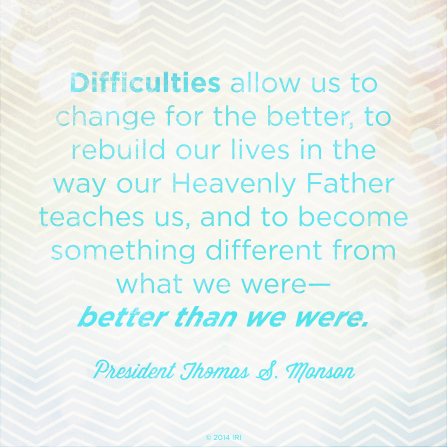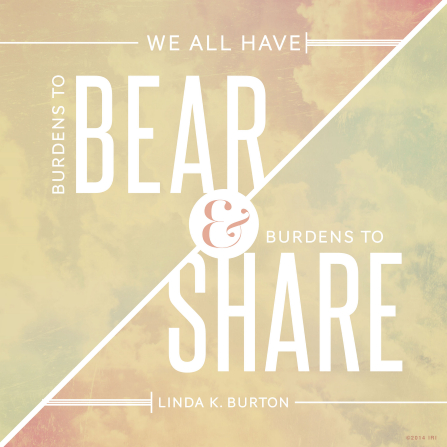 |
| lds.org |
We're all admirers. We see people and all the wonderful things they do, especially on social media, and admire them different ways. We may admire someone's decorating skills, another's dedication to a hobby, and yet another person's musical talent. You might find yourself thinking, "She's amazing!"
What about other parents? What makes you admire someone in their parenting skills and declare them, whether you keep it to yourself or express it out loud, "amazing"?
Before I ever had children, I thought all parents with special needs children were amazing. After Bug was born and I quickly learned what a challenge parenting is, that cemented by belief.
Then...I realized I was one of those parents. But even though I found myself as part of that amazing-special-needs-parent-group, I didn't feel amazing. Honestly, much of the time, I felt lousy. I wasn't as patient as I should be. I was still learning all about autism and Bug's specific needs. I thought that because I had a special needs child, I must be amazing, and since I didn't feel that I was, I was doing something wrong - or worse, I didn't deserve him.
My thinking was backwards: exceptional children aren't exclusively born to amazing people. Exceptional children are born to ordinary people, and over time, those ordinary people become amazing. That same principle applies to any hardship or challenge. You aren't given trials because you can overcome them with ease; but because through them, you can improve and learn and grow in ways you could not otherwise (this post is particularly relevant).
It's easy to determine someone's amazingness (however you want to define it) by the challenges they face, if only because we have no idea what we would do if faced with those challenges ourselves. But over the last year, I have tried instead to appreciate people's efforts not by the challenges and trials they face, but by what they do with them. Let's not get into the habit of defining people by their circumstances, but instead by their unique traits that help them make the best they can of any situation in which they might find themselves. I believe it's safe to say that most people are honestly doing the best they know how every single day, in every situation - which makes us all amazing!

